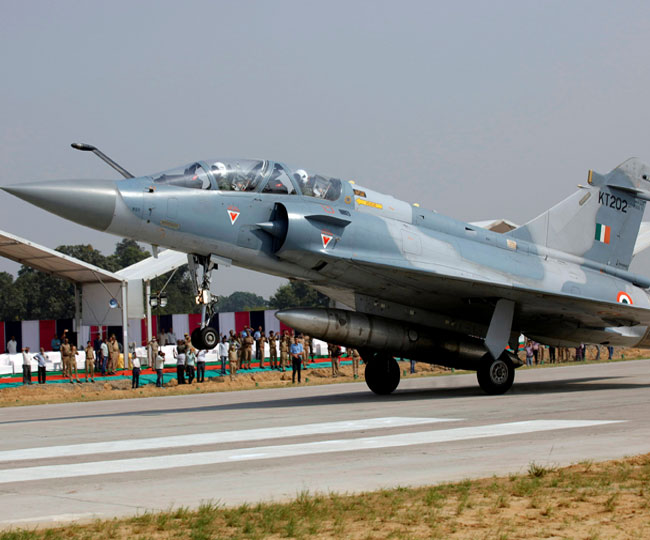IAF Must Plan For Pilot Retention

There is a sort of exodus from IAF, as pilots whose career progression has come to an end are leaving for better prospects, after putting in minimum pensionable service.
The Indian Air Force (IAF) needs to review its promotion policy to ensure that Officers to the rank of Group Captain become Air Commodores at an earlier age as part of an overarching plan to improve their career prospects and keep pilots from quitting service. As per a few senior officers, IAF is already thinking on these lines.
With the next promotion to Air Commodore coming after a long waiting period and there being no surety of promotions due to steep Burz Khalifa structure, pilots are leaving the air force for better prospects outside.
During the last two years they have left to join private airlines that offer better salary and perquisites. This has rung the alarms bells in the IAF, compelling it to take stock of the problem and devise ways to retain talent.
More than 200 middle-rung IAF pilots took retirement, after putting in 20 years minimum service for pension or what the air force calls premature separation from service (PSS), 2018-19, this is permitted as per rules.He stressed that the figure was far higher than normal though he forgets that without incentive retention is difficult. The IAF received applications from more than 300 officers for early retirement over the last two years, of whom 200 were released.
“The number of officers who were allowed to leave is too high. According to our assessment, if more than 60 pilots quit every year, it can cause an imbalance in our functioning. We cannot allow the numbers to go beyond what is acceptable,” said the second official cited above said.
The IAF is handling the pilot retention problem by adopting a multi-pronged approach that includes reviewing the promotion policy to remove stagnation, tightening the eligibility criteria for granting PSS, giving officers greater clarity about career growth and fine-tuning the human resource policy to address issues related to postings, tenure and family requirements.
The IAF was working to tighten rules to prevent its pilots from leaving service and a raft of measures were being implemented to arrest the trend of officers quitting the air force to take up well-paying flying jobs outside.
The promotion policy is being reviewed to remove stagnation at a critical career juncture – the group captain level (equivalent to a colonel in the army).
“It can take up to 13 years for a group captain to be promoted as an air commodore (equivalent to a brigadier). We are examining the possibility of bringing it down to around 10 years to address the aspirations of officers,” the first official said.
A middle-rung IAF pilot earning up to ₹2 lakh a month could land up a salary that is four times higher as captain in a private airlines. Most pilots quit service after being overlooked for promotion and completing 20 years of service, which entitles them to a pension.
My nillplp LP
“We are not talking about a blanket ban on pilots leaving the air force. But some restrictions are being imposed so that the IAF does not suffer. Simultaneously, we are adopting a proactive approach to address issues that are bothering people,” the first official said.
The second official said pilots who had been overlooked for promotion would be given top priority for early release, followed by officers who make it to the next rank only in the last promotion board. While most pilots usually look at leaving after being overlooked for promotion, there have been cases of people putting in their papers before reaching that stage.
“The 200 pilots who quit during 2018-19 included officers who had not been superseded and were doing well. That can’t be allowed to go on. We are looking at those issues very carefully,” the second official added.
Experts said it was critical for the IAF to ensure that it had adequate number of pilots for operational utilisation.
“It takes years to operationalise a pilot. And then comes a time when he needs to give back to the country the time and effort invested in him. People join the air force of their own free will.
The IAF has to enforce policies that ensure minimum strength of pilots is maintained to carry out operational roles,” said Air Vice Marshal Manmohan Bahadur (retd), additional director general, Centre for Air Power Studies.
He added that the IAF’s human resource policies looked at the human aspect and career progression of officers and there were in-built mechanisms to make sure that genuine cases for early discharge did not suffer.




